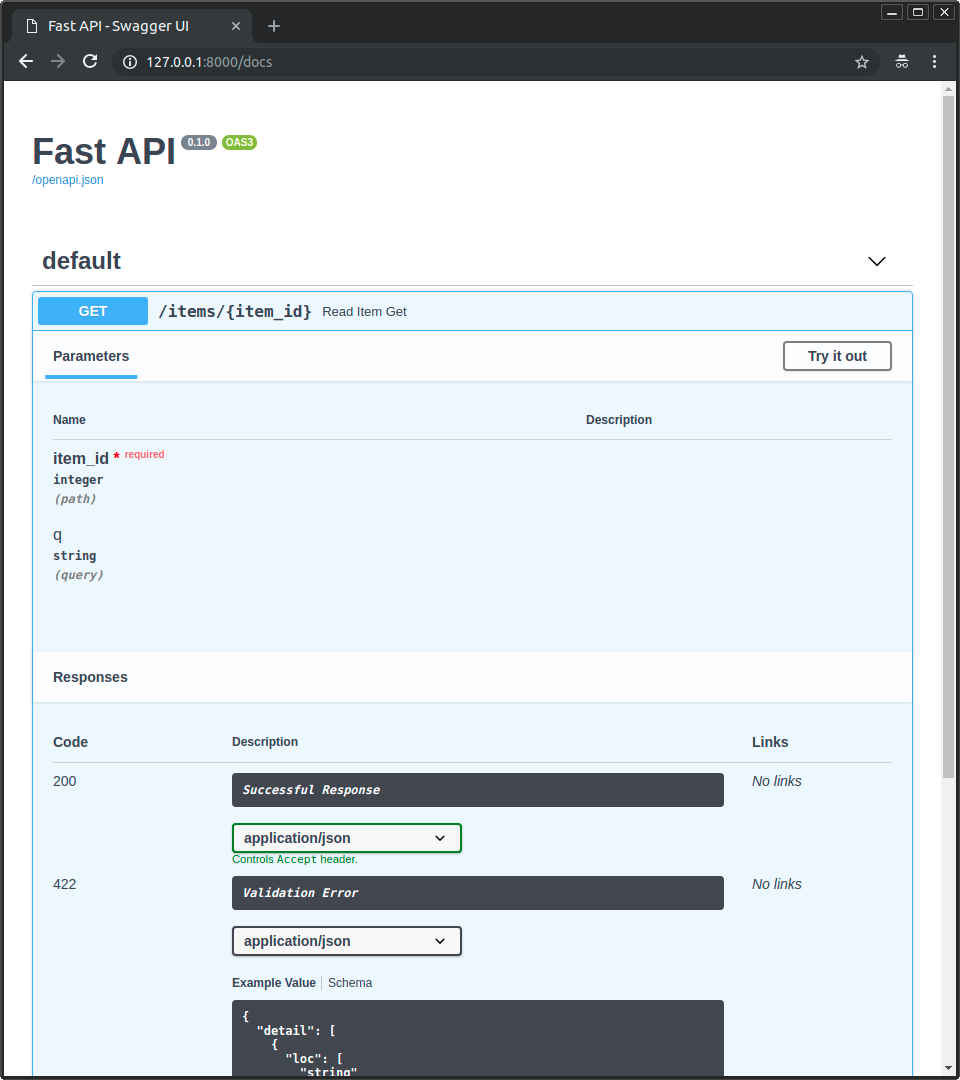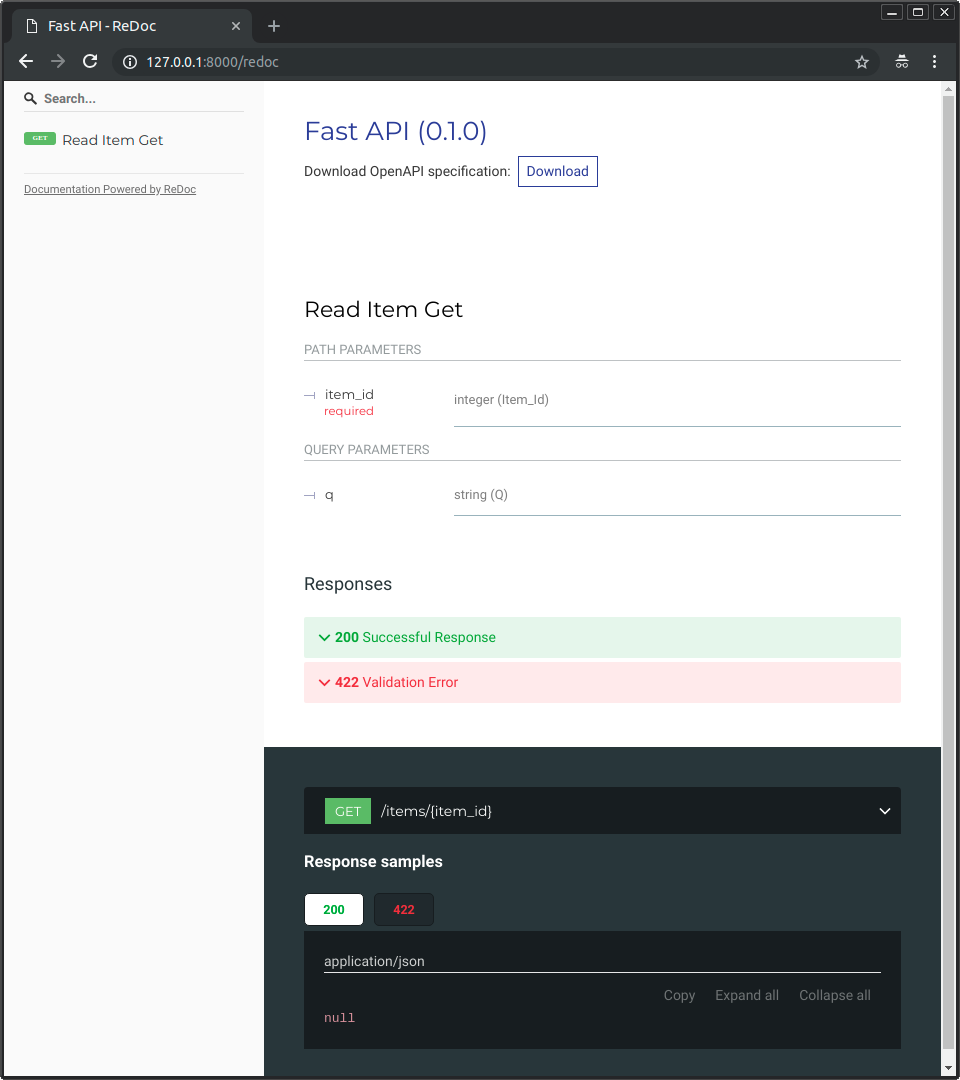- Sort Score
- Result 10 results
- Languages All
Results 431 - 440 of 844 for simili (1.04 sec)
-
docs/zh/docs/tutorial/first-steps.md
 ### 可选的 API 文档 前往 <a href="http://127.0.0.1:8000/redoc" class="external-link" target="_blank">http://127.0.0.1:8000/redoc</a>。 你将会看到可选的自动生成文档 (由 <a href="https://github.com/Rebilly/ReDoc" class="external-link" target="_blank">ReDoc</a> 提供):  ### OpenAPI
Registered: Sun Dec 28 07:19:09 UTC 2025 - Last Modified: Sat Oct 11 17:48:49 UTC 2025 - 10.5K bytes - Viewed (0) -
build-logic/dependency-modules/src/main/kotlin/gradlebuild/modules/extension/ExternalModulesExtension.kt
val pmavenCommon = "org.sonatype.pmaven:pmaven-common" val pmavenGroovy = "org.sonatype.pmaven:pmaven-groovy" val slf4jApi = "org.slf4j:slf4j-api" val slf4jSimple = "org.slf4j:slf4j-simple" val snakeyaml = "org.yaml:snakeyaml" val testng = "org.testng:testng" val tomlj = "org.tomlj:tomlj" val trove4j = "org.jetbrains.intellij.deps:trove4j"Registered: Wed Dec 31 11:36:14 UTC 2025 - Last Modified: Fri Dec 19 06:45:52 UTC 2025 - 15.9K bytes - Viewed (0) -
docs/en/docs/index.md
--- "_If anyone is looking to build a production Python API, I would highly recommend **FastAPI**. It is **beautifully designed**, **simple to use** and **highly scalable**, it has become a **key component** in our API first development strategy and is driving many automations and services such as our Virtual TAC Engineer._"
Registered: Sun Dec 28 07:19:09 UTC 2025 - Last Modified: Thu Dec 25 11:01:37 UTC 2025 - 23.5K bytes - Viewed (0) -
compat/maven-plugin-api/src/main/java/org/apache/maven/plugin/descriptor/MojoDescriptor.java
* <code><execution></code> element. */ private String phase; /** Specify the version when the Mojo was added to the API. Similar to Javadoc since. */ private String since; /** Reference the invocation phase of the Mojo. */ private String executePhase; /** Reference the invocation goal of the Mojo. */
Registered: Sun Dec 28 03:35:09 UTC 2025 - Last Modified: Fri Jun 06 14:28:57 UTC 2025 - 21.7K bytes - Viewed (0) -
docs/pt/docs/tutorial/cors.md
Nesse caso, o middleware interceptará a solicitação recebida e responderá com cabeçalhos CORS apropriados e uma resposta `200` ou `400` para fins informativos. ### Requisições Simples { #simple-requests } Qualquer solicitação com um cabeçalho `Origin`. Neste caso, o middleware passará a solicitação normalmente, mas incluirá cabeçalhos CORS apropriados na resposta. ## Mais informações { #more-info }Registered: Sun Dec 28 07:19:09 UTC 2025 - Last Modified: Wed Dec 17 20:41:43 UTC 2025 - 5.9K bytes - Viewed (0) -
compat/maven-compat/src/main/java/org/apache/maven/repository/RepositorySystem.java
* (if applicable). This process will essentially remove duplicate repositories by merging them into one equivalent * repository. It is worth to point out that merging does not simply choose one of the input repositories and * discards the others but actually combines their possibly different policies. * * @param repositories The original repositories, may be {@code null}.Registered: Sun Dec 28 03:35:09 UTC 2025 - Last Modified: Fri Oct 25 12:31:46 UTC 2024 - 7.7K bytes - Viewed (0) -
src/main/java/org/codelibs/fess/app/web/api/admin/duplicatehost/ApiAdminDuplicatehostAction.java
/** * API action for admin duplicate host management. * Provides RESTful API endpoints for managing duplicate host settings in the Fess search engine. * Duplicate host settings help prevent indexing the same content from multiple similar URLs. * */ public class ApiAdminDuplicatehostAction extends FessApiAdminAction { private static final Logger logger = LogManager.getLogger(ApiAdminDuplicatehostAction.class);Registered: Sat Dec 20 09:19:18 UTC 2025 - Last Modified: Thu Aug 07 03:06:29 UTC 2025 - 8.3K bytes - Viewed (0) -
compat/maven-embedder/src/main/java/org/apache/maven/cli/transfer/SimplexTransferListener.java
import static java.util.Objects.requireNonNull; /** * A {@link TransferListener} implementation that wraps another delegate {@link TransferListener} but makes it run * on single thread, keeping the listener logic simple. This listener also blocks on last transfer event to allow * output to perform possible cleanup. It spawns a daemon thread to consume queued events that may fall in even * concurrently. * * @since 4.0.0 */Registered: Sun Dec 28 03:35:09 UTC 2025 - Last Modified: Fri Nov 08 08:49:11 UTC 2024 - 8.4K bytes - Viewed (0) -
docs/fr/docs/index.md
--- "_Si quelqu'un cherche à construire une API Python de production, je recommande vivement **FastAPI**. Il est **bien conçu**, **simple à utiliser** et **très évolutif**. Il est devenu un **composant clé** dans notre stratégie de développement API first et il est à l'origine de nombreux automatismes et services tels que notre ingénieur virtuel TAC._"
Registered: Sun Dec 28 07:19:09 UTC 2025 - Last Modified: Sat Oct 11 17:48:49 UTC 2025 - 22K bytes - Viewed (0) -
docs/es/docs/index.md
--- "_Si alguien está buscando construir una API de Python para producción, altamente recomendaría **FastAPI**. Está **hermosamente diseñado**, es **simple de usar** y **altamente escalable**, se ha convertido en un **componente clave** en nuestra estrategia de desarrollo API primero y está impulsando muchas automatizaciones y servicios como nuestro Ingeniero Virtual TAC._"
Registered: Sun Dec 28 07:19:09 UTC 2025 - Last Modified: Tue Dec 16 16:33:45 UTC 2025 - 24.3K bytes - Viewed (0)